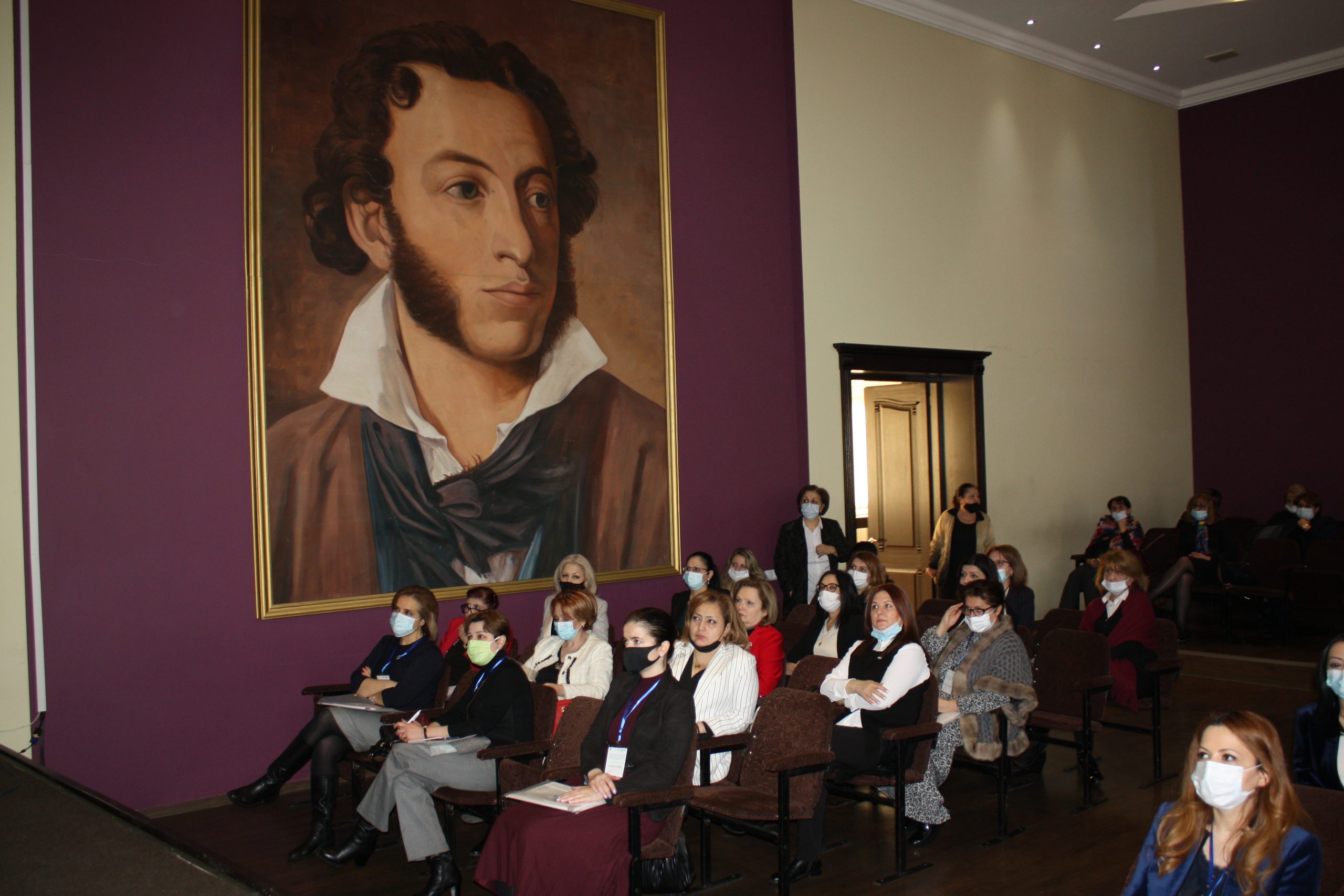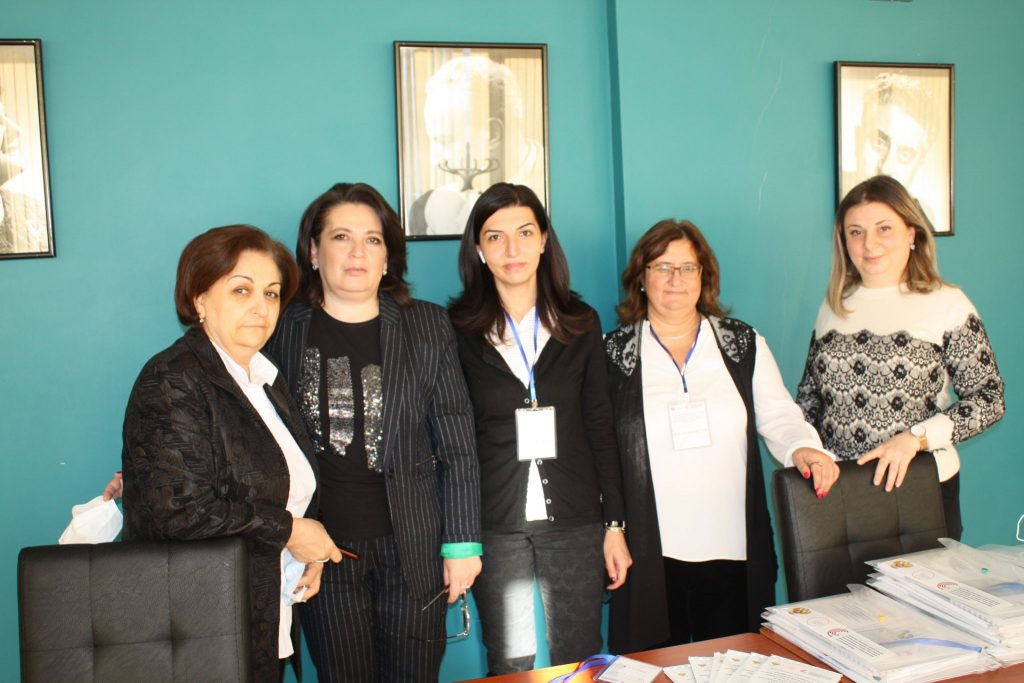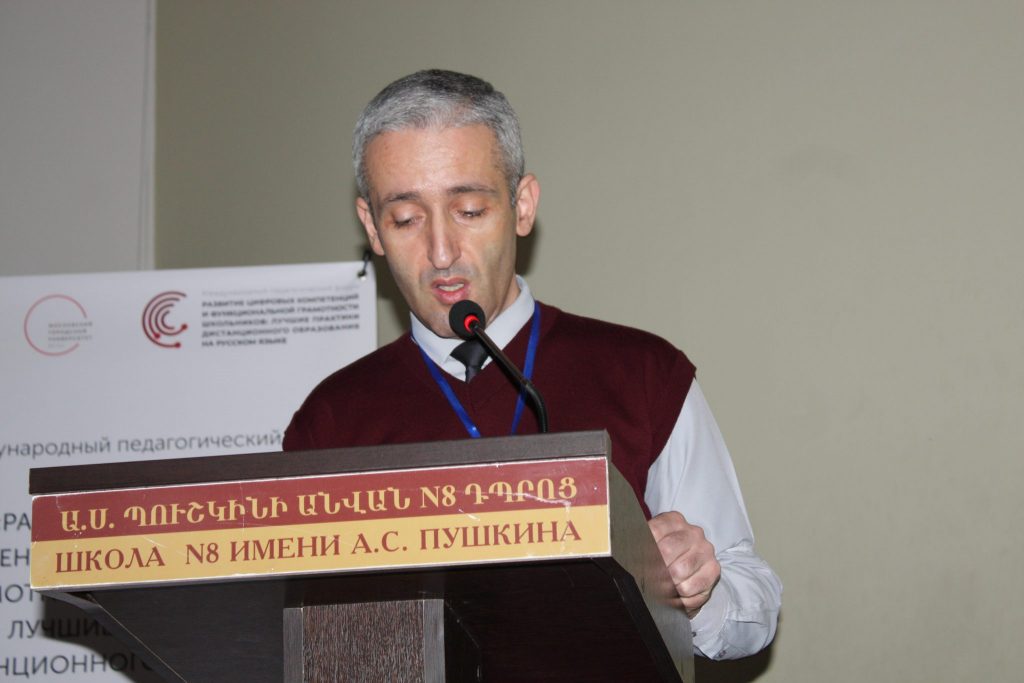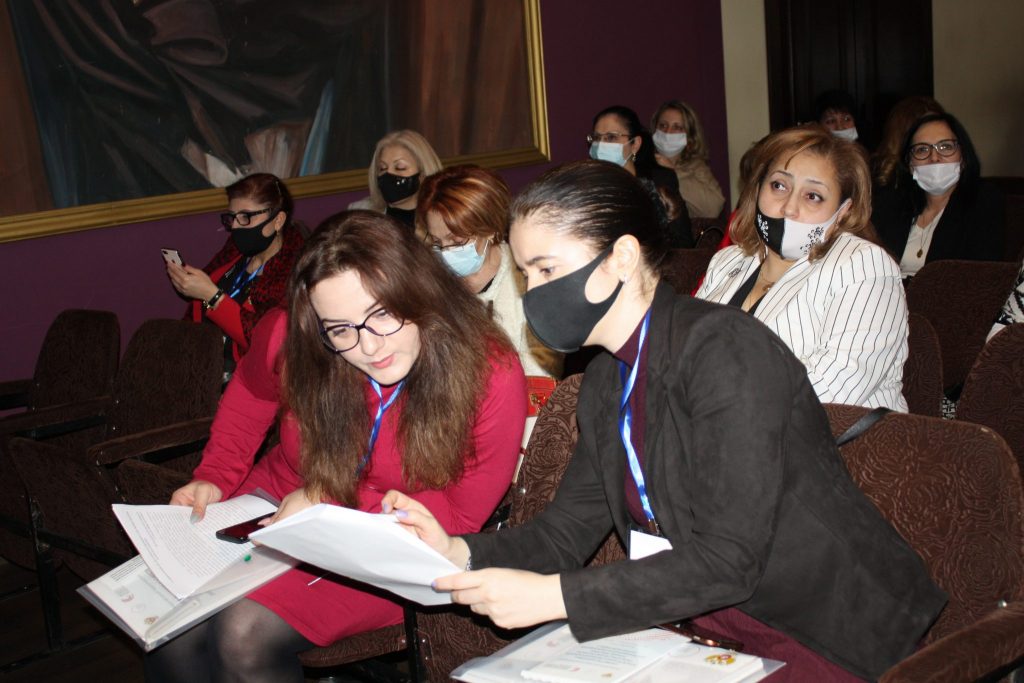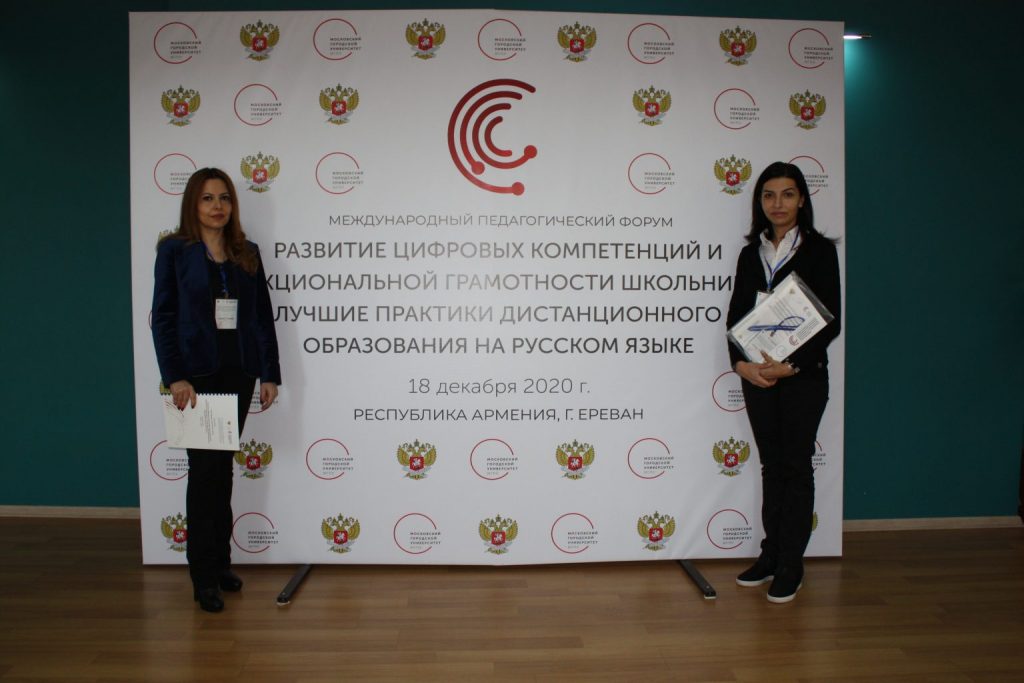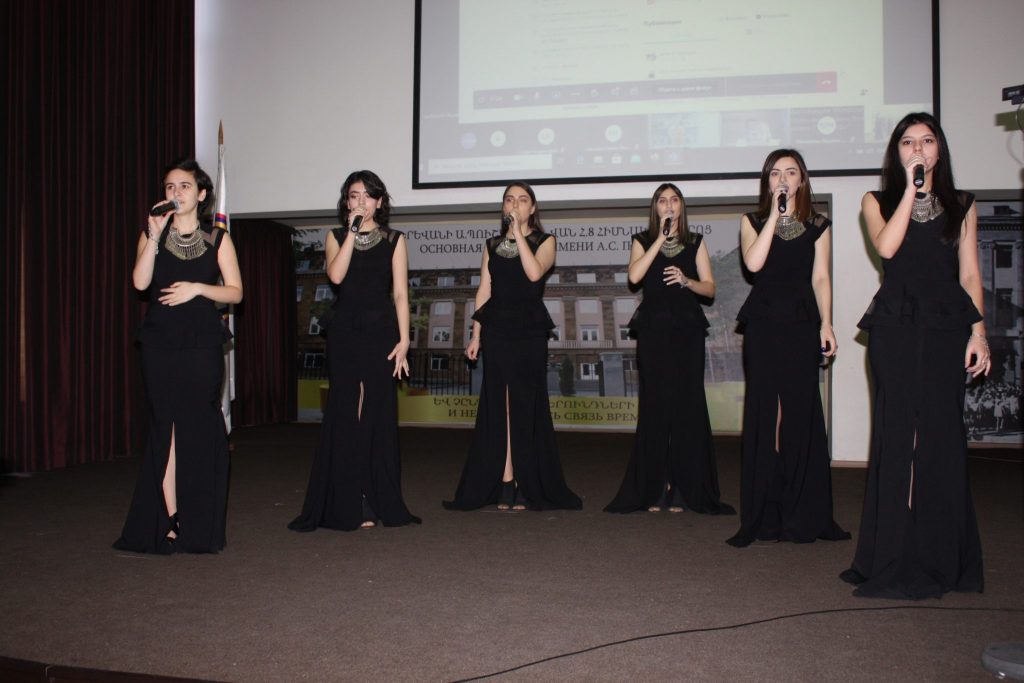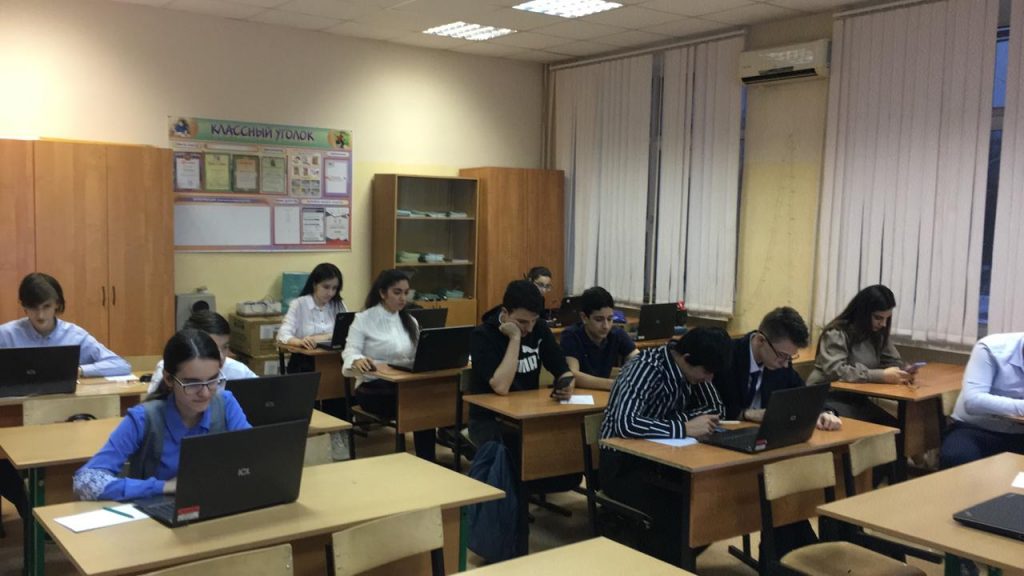On December 18, Moscow City University hosted the International Pedagogical Forum “Development of School Students’ Digital Competencies and Functional Literacy: Best Practices of Russian-language Distance Learning” in Yerevan, Armenia.
The Forum brought together 1,000 teachers, experts and researchers in education. The participants represented more than 15 countries, including the United Kingdom, the Czech Republic, Spain, Jordan, Belarus, Kazakhstan, Kyrgyzstan, and Mongolia. The Forum was held in a mixed format: Alexander Pushkin Basic School №8 welcomed some of the participants in Yerevan, others joined the meeting via the MCU Distance Platform.
In the beginning, First Vice-Rector Professor Elena Gevorkyan delivered an opening speech and highlighted the relevance of the Forum’s topic. Professor Gevorkyan admitted that it is crucial “not to lose the teacher and education system when transferring to the digital technologies and distance learning.”
Atsamaz Bichenov, Interim Director of the Russian Center of Science and Culture in Yerevan, represented the Armenian party:
The first part of the Forum was dedicated to the introduction of the most efficient methods and technologies of Russian-language distance learning. The methods and technologies assist in developing school students’ digital competencies and functional literacy: natural sciences literacy, creative thinking, mathematical literacy, financial literacy, reading literacy, and global competence.
In the second part, the participants of the Forum attended the thematic sessions and workshops, which presented Russian and international experience in the development of school students’ functional literacy in terms of part- and full-time distance learning: open learning resources for project and research activity, “peer-to-peer” learning model, among others.
School and university students were offered to take an interactive quiz to check the level of their functional literacies and digital competencies.
The International Pedagogical Forum “Development of School Students’ Digital Competencies and Functional Literacy: Best Practices of Russian-language Distance Learning” concluded the set of three pedagogical meetings dedicated to various aspects of Russian-language distance learning and open education. The first Forum in Bishkek, Kyrgyzstan, discussed the issues of teaching and learning in the Russian language. The second Forum was held in Ulan Bator, Mongolia, and raised the questions of education digitalization in the context of distance learning.

